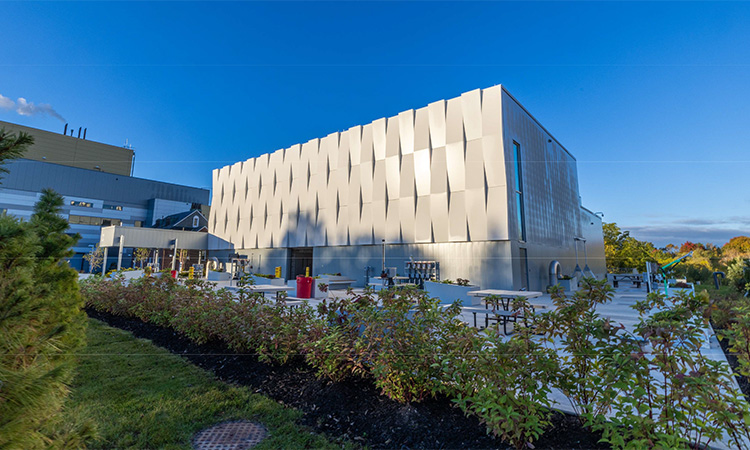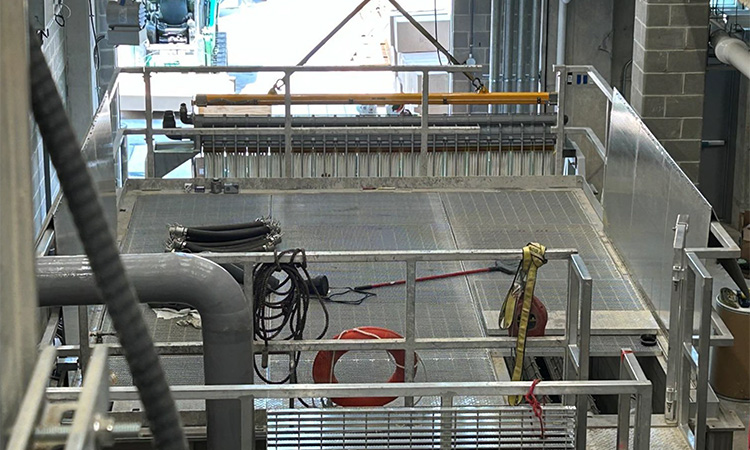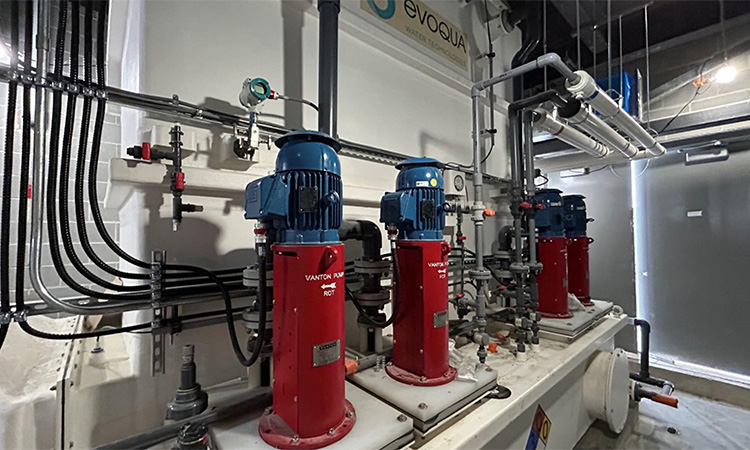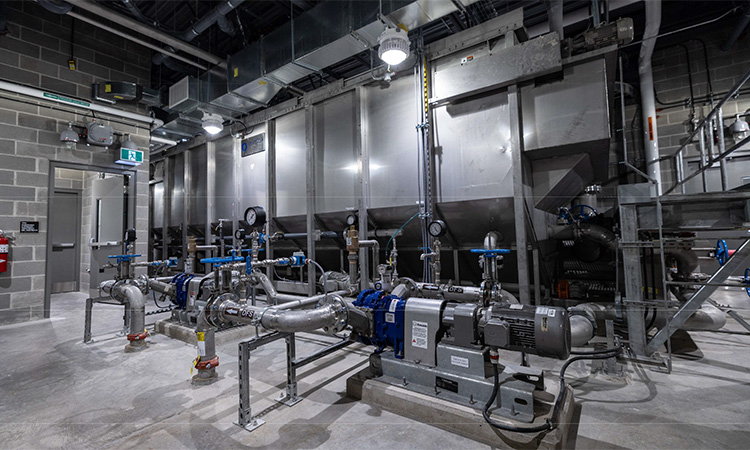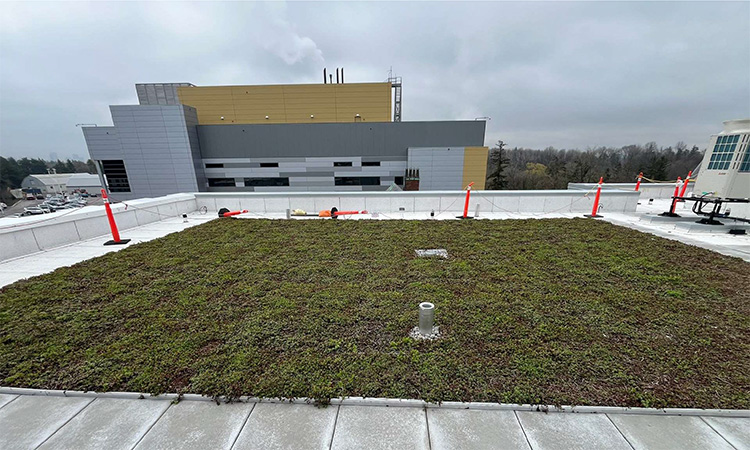Sanofi
Location: Toronto, Canada
Project: Wastewater Treatment and Reuse Plant – B99
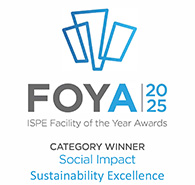
Sanofi recently completed a new wastewater treatment and reuse plant in its existing Toronto, Canada facility. The project was completed safely and resulted in the successful installation of state-of-the-art technologies and innovative engineering solutions, which has earned Sanofi Toronto the recognition as the 2025 ISPE Facility of the Year Awards (FOYA) Category Winner for Social Impact Sustainability.
Sanofi Toronto is a vaccines facility that manufactures and distributes annually up to 100 million pediatric and adult vaccines and other pharmaceutical products. It has been in continuous operation at 1755 Steeles Avenue West in Toronto since 1914. The site consists of approximately 35 buildings across a 54-hectare site. In addition to manufacturing, the site also houses several research and development facilities and a warehouse.
Beyond healthcare, Sanofi cares for the planet by minimizing the environmental impacts of products and activities while strengthening resilience to environmental changes.
Sanofi’s five environmental commitments are:
- Fight climate change by building the road to carbon neutrality
- Limit environmental footprint by optimizing the use/reuse of resources and reducing impact of emissions
- Improve environmental profile of products by delivering eco-innovative products
- Mobilize people for environmental sustainability
- Engage with suppliers by sourcing responsibly and leading by example
The Wastewater Treatment and Reuse Plant (WWTRP) at Sanofi (referred to on-site as B99) is equipped with state-of-the-art technologies and innovative engineering solutions, setting a new standard for the industry. The plant was designed as a post-disaster building with redundancy at the forefront and includes a raw water lift station, two equalization tanks for storing and chemically treating high-strength wastewater, a flocculation tank, a dissolved air flotation (DAF) tank, two membrane bioreactors (MBRs), two aeration tanks, and an advanced oxidation system utilizing ultraviolet (UV) irradiation and hydrogen peroxide. The treated water can either be discharged to the environment or sent to a reuse water tank, where it undergoes a two-pass reverse osmosis (RO) system to produce high-purity boiler feed water for the Cogen plant. The plant is fully controlled and monitored by a supervisory control and data acquisition (SCADA) system, which allows for comprehensive data management and remote control, ensuring optimal operation and efficiency.
The WWTRP produces high-purity boiler feed water in compliance with US Environmental Protection Agency (EPA) guidelines. The reuse water generated by the WWTRP provides business continuity and reliability to the manufacturing processes.
The facility stands out due to its vertical construction, necessitated by footprint constraints, and its use of RO filtration to produce boiler feed water, a practice extremely rare in industrial wastewater treatment plants. The building also features a green roof, energy recovery ventilators, variable frequency drives (VFDs), and an odor control system that captures and treats foul air. Designed to blend seamlessly with other state-of-the-art manufacturing buildings on campus, the facility is aesthetically pleasing and unobtrusive to the neighboring residential area to the east of the campus.
The WWTRP has successfully achieved its design intent successfully treating all types of wastewaters produced at the site and of producing 500 m³/day of high-purity reuse water for boiler feed makeup. The remainder of the treated wastewater that is discharged off-site exceeds the city of Toronto's sewer use bylaw requirements, demonstrating superior treatment performance.
The site for the WWTRP was strategically selected to minimize visual impact on the neighboring residential area and optimize operational logistics. The building's east façade presents an aesthetically pleasing view to the neighborhood, while the west side allows for discreet delivery access such that operations can continue unencumbered.
The WWTRP exemplifies Sanofi's dedication to sustainability. By incorporating best practices in environmental, social, and economic sustainability, the new facility not only enhances operational efficiency but also contributes positively to the community and the environment.
Based on these innovative ways of working and implementing this project in a safe and sustainable manner, Sanofi is recognized as the 2025 ISPE FOYA Category Winner for Social Impact Sustainability Excellence, for their WWTRP – B99 project in Toronto, Canada.
Supply Partners and Key Participants:
Manufacturer/Owner Name: Sanofi Toronto, Canada
Engineer/Architect (A/E): Dillon Consulting Limited, Canada
Construction Manager: Bird Construction, Canada
Piping and HVAC Subcontractor: Black and McDonald, Canada
Automation and Control Supplier: NGCL, Canada
Major Equipment Supplier: Evoqua Water Technologies (Now Xylem), US


